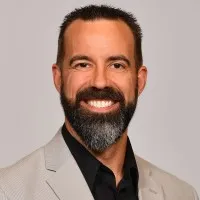Day three of the PreSales Leadership Collective Executive Summit started with an inspirational session on creating a coaching culture within your PreSales organization. Our speakers were:
Diana Capello, Manager of Sales Engineering for Customer Growth at Clari
Selin Korustan, Director of Sales Engineering at WalkMe
Vikram Gupta, Americas and LATAM Solutions Engineering at Akamai
Rohan Vaidya, Head of Sales Engineering at Gong
What is a Coach?
Coaching is often a misunderstood portion of a leader’s job. It’s commonly mixed in with three other categories of helping people to learn.
Teacher: I’ll tell you what you need to know.
Consultant: I’ll give you advice on how to solve your problem.
Mentor: I’ll guide you on what to do by imparting my knowledge and experience.
Coach: I’ll ask questions instead of providing answers, support you instead of judging, and facilitate your development instead of dictating what has to be done.
While there’s lots of value in the first three categories, in this session we focused exclusively on coaching. Diana describes it succinctly as asking open-ended questions to get people to think for themselves to increase their own development.
And coaching is a very valuable activity for the PreSales organization, and even the company as a whole - if you get it right. There’s nearly a 17% increase in revenue growth for companies that provide an optimal amount of coaching.
How to Build a Coaching Culture
Rohan says that building a coaching culture starts with us as leaders. If our managers see us instilling that coaching culture, they’ll do it as well. We have to show them the benefits of it, and then they’ll do it for their direct reports as well.
Selin notes that creating a culture of coaching begins by getting people of all levels comfortable being vulnerable with each other. It’s taken time at WalkMe, but her PreSales team tries to encourage everyone to share ideas with, and be open to ideas from, each other regularly.
But their biggest goal is making coaching fun - through competitions and tools. Once a year they have DemoPalooza where everyone on the team is assigned a topic without much guidance and takes a stab at articulating the value through the product. Each person presents their take to the team and receives (and gives) feedback, which makes everyone feel open and like they’re in it together.
They also have biweekly collaboration sessions where they share struggles and offer feedback to each other. This kind of team-building is important because a true coaching culture doesn’t just come from leaders - it comes from peers too.
Coaching is a Challenge
Vikram points out that coaching is really hard to do well for several reasons. It’s challenging to be asked a question and not give advice in response - both because we care about those people and because it’s what we’re trained to do in PreSales.
But we might be solving the wrong problem. And maybe our advice isn’t as good as we think it is. We have so many cognitive biases that we might not be as good of an advice-giver as we think.
So when someone comes to you with a question, think instead about what is in the best interest of this individual. Maybe it’s a good moment to give them the opportunity to uncover the path through their own journey. Coaching is all about taming our inner advice monster. Take a step back and ask great questions instead.
Making Time for Coaching
In Rohan’s org, every manager has a weekly coaching session with each report. This cadence is important, because coaching really needs to happen regularly or the benefits get lost. And it’s easy for that to occur - everyone gets swamped with deals and keeps delaying and it just falls off their radar.
On Diana’s team, there’s a recap/debrief after every big call. The team reserves 30 minutes after the call to share feedback with each other on how it went, what went well, and what needs to be improved next time.
Getting Buy-In
Vikram says that getting leadership buy-in is the most important thing, because that’s how the coaching culture thrives. Put it in your KPIs, get formal training or certification, or an executive coach agreement - these are just a few ways to make the commitment to coaching clear at a leadership level. If we do that it fosters a high degree of trust and engagement.
He also notes the importance of leading from the front. His team knows if they come to him with a problem, he’s going to ask a question instead of giving a solution. They’re much more likely to be self-sufficient when they know that will be the response. And they practice the same with their team of SEs as well. It trickles down in a really productive way.
Rohan states that if people can see what’s ahead in their career progression and have clear goals, they’re more willing and excited to do coaching. This makes everyone wants to keep getting better, and they know coaching contributes and will take them where they want to go, and this excitement keeps the culture alive.
How to Coach New Managers
Vikram says he never gives a crap sandwich when coaching new managers, it’s not effective. “You did this great but…” just doesn’t feel genuine. Instead he uses the EEC framework (Example, Effect, Continue/Change). He structures his conversations with “here’s what you did, here was the effect, and here is what to continue or change.”
Diana advises new managers to rehearse difficult conversations in advance with your own manager or HR - they can be really helpful. Ask others for assistance and feedback just like you when you dry run your demos.
Rohan notes that there’s no magic bullet - these skills take time to develop, and that doesn’t happen on day 1. Start off by listening a lot instead of giving advice, which moves you from a peer giving advice to a manager offering coaching.
Key Takeaways
Coaching is powerful. Vikram notes that if you’re coached to your strengths you’re 3x more likely to have a better quality of life. It helps him with his child, his wife, and his friends too - not just at work. Taking the time and effort to build a coaching culture in your PreSales organization isn’t easy, but the benefits are well worth it.
Want access to the Executive Summit Event Deck? Click Here!
Resources Outlined
Books
Articles
HBR, Leader as Coach and the GROW model
Article in Forbes Magazine: Are First-Line Sales Managers In Danger Of Extinction?
https://www.linkedin.com/pulse/101-sales-coaching-some-stats-you-cant-ignore-alex-alleyne/
https://www.apollotechnical.com/employee-retention-statistics/
Listening
- https://coachingforleaders.com/podcast/deep-listening-oscar-trimboli/
- https://www.oscartrimboli.com/wp-content/uploads/2021/06/5_Myths_of_Listening_202105.pdf
- “Coaching For Leaders” - Michael Bungay Stanier: https://coachingforleaders.com/podcast/237/
Advice Monster
- “The Advice Trap” book. Michael Bungay Stanier
- https://www.youtube.com/watch?v=ecE4FthZQ-0
CliftonStrengths
Culture and Tools
- https://www.gallup.com/cliftonstrengths/en/253790/science-of-cliftonstrengths.aspx
- https://www.gallup.com/cliftonstrengths/en/249497/compare-strengths-profile-cliftonstrengths.aspx
CliftonStrengths vs DISC
- https://www.gallup.com/cliftonstrengths/en/249950/compare-disc-assessment-cliftonstrengths.aspx
- https://strengthsschool.com/strengthsfinder-blog/cliftonstrengths-vs-disc
CliftonStrengths compared to other tools
Day three of the PreSales Leadership Collective Executive Summit started with an inspirational session on creating a coaching culture within your PreSales organization. Our speakers were:
Diana Capello, Manager of Sales Engineering for Customer Growth at Clari
Selin Korustan, Director of Sales Engineering at WalkMe
Vikram Gupta, Americas and LATAM Solutions Engineering at Akamai
Rohan Vaidya, Head of Sales Engineering at Gong
What is a Coach?
Coaching is often a misunderstood portion of a leader’s job. It’s commonly mixed in with three other categories of helping people to learn.
Teacher: I’ll tell you what you need to know.
Consultant: I’ll give you advice on how to solve your problem.
Mentor: I’ll guide you on what to do by imparting my knowledge and experience.
Coach: I’ll ask questions instead of providing answers, support you instead of judging, and facilitate your development instead of dictating what has to be done.
While there’s lots of value in the first three categories, in this session we focused exclusively on coaching. Diana describes it succinctly as asking open-ended questions to get people to think for themselves to increase their own development.
And coaching is a very valuable activity for the PreSales organization, and even the company as a whole - if you get it right. There’s nearly a 17% increase in revenue growth for companies that provide an optimal amount of coaching.
How to Build a Coaching Culture
Rohan says that building a coaching culture starts with us as leaders. If our managers see us instilling that coaching culture, they’ll do it as well. We have to show them the benefits of it, and then they’ll do it for their direct reports as well.
Selin notes that creating a culture of coaching begins by getting people of all levels comfortable being vulnerable with each other. It’s taken time at WalkMe, but her PreSales team tries to encourage everyone to share ideas with, and be open to ideas from, each other regularly.
But their biggest goal is making coaching fun - through competitions and tools. Once a year they have DemoPalooza where everyone on the team is assigned a topic without much guidance and takes a stab at articulating the value through the product. Each person presents their take to the team and receives (and gives) feedback, which makes everyone feel open and like they’re in it together.
They also have biweekly collaboration sessions where they share struggles and offer feedback to each other. This kind of team-building is important because a true coaching culture doesn’t just come from leaders - it comes from peers too.
Coaching is a Challenge
Vikram points out that coaching is really hard to do well for several reasons. It’s challenging to be asked a question and not give advice in response - both because we care about those people and because it’s what we’re trained to do in PreSales.
But we might be solving the wrong problem. And maybe our advice isn’t as good as we think it is. We have so many cognitive biases that we might not be as good of an advice-giver as we think.
So when someone comes to you with a question, think instead about what is in the best interest of this individual. Maybe it’s a good moment to give them the opportunity to uncover the path through their own journey. Coaching is all about taming our inner advice monster. Take a step back and ask great questions instead.
Making Time for Coaching
In Rohan’s org, every manager has a weekly coaching session with each report. This cadence is important, because coaching really needs to happen regularly or the benefits get lost. And it’s easy for that to occur - everyone gets swamped with deals and keeps delaying and it just falls off their radar.
On Diana’s team, there’s a recap/debrief after every big call. The team reserves 30 minutes after the call to share feedback with each other on how it went, what went well, and what needs to be improved next time.
Getting Buy-In
Vikram says that getting leadership buy-in is the most important thing, because that’s how the coaching culture thrives. Put it in your KPIs, get formal training or certification, or an executive coach agreement - these are just a few ways to make the commitment to coaching clear at a leadership level. If we do that it fosters a high degree of trust and engagement.
He also notes the importance of leading from the front. His team knows if they come to him with a problem, he’s going to ask a question instead of giving a solution. They’re much more likely to be self-sufficient when they know that will be the response. And they practice the same with their team of SEs as well. It trickles down in a really productive way.
Rohan states that if people can see what’s ahead in their career progression and have clear goals, they’re more willing and excited to do coaching. This makes everyone wants to keep getting better, and they know coaching contributes and will take them where they want to go, and this excitement keeps the culture alive.
How to Coach New Managers
Vikram says he never gives a crap sandwich when coaching new managers, it’s not effective. “You did this great but…” just doesn’t feel genuine. Instead he uses the EEC framework (Example, Effect, Continue/Change). He structures his conversations with “here’s what you did, here was the effect, and here is what to continue or change.”
Diana advises new managers to rehearse difficult conversations in advance with your own manager or HR - they can be really helpful. Ask others for assistance and feedback just like you when you dry run your demos.
Rohan notes that there’s no magic bullet - these skills take time to develop, and that doesn’t happen on day 1. Start off by listening a lot instead of giving advice, which moves you from a peer giving advice to a manager offering coaching.
Key Takeaways
Coaching is powerful. Vikram notes that if you’re coached to your strengths you’re 3x more likely to have a better quality of life. It helps him with his child, his wife, and his friends too - not just at work. Taking the time and effort to build a coaching culture in your PreSales organization isn’t easy, but the benefits are well worth it.
Want access to the Executive Summit Event Deck? Click Here!
Resources Outlined
Books
Articles
HBR, Leader as Coach and the GROW model
Article in Forbes Magazine: Are First-Line Sales Managers In Danger Of Extinction?
https://www.linkedin.com/pulse/101-sales-coaching-some-stats-you-cant-ignore-alex-alleyne/
https://www.apollotechnical.com/employee-retention-statistics/
Listening
- https://coachingforleaders.com/podcast/deep-listening-oscar-trimboli/
- https://www.oscartrimboli.com/wp-content/uploads/2021/06/5_Myths_of_Listening_202105.pdf
- “Coaching For Leaders” - Michael Bungay Stanier: https://coachingforleaders.com/podcast/237/
Advice Monster
- “The Advice Trap” book. Michael Bungay Stanier
- https://www.youtube.com/watch?v=ecE4FthZQ-0
CliftonStrengths
Culture and Tools
- https://www.gallup.com/cliftonstrengths/en/253790/science-of-cliftonstrengths.aspx
- https://www.gallup.com/cliftonstrengths/en/249497/compare-strengths-profile-cliftonstrengths.aspx
CliftonStrengths vs DISC
- https://www.gallup.com/cliftonstrengths/en/249950/compare-disc-assessment-cliftonstrengths.aspx
- https://strengthsschool.com/strengthsfinder-blog/cliftonstrengths-vs-disc
CliftonStrengths compared to other tools
Day three of the PreSales Leadership Collective Executive Summit started with an inspirational session on creating a coaching culture within your PreSales organization. Our speakers were:
Diana Capello, Manager of Sales Engineering for Customer Growth at Clari
Selin Korustan, Director of Sales Engineering at WalkMe
Vikram Gupta, Americas and LATAM Solutions Engineering at Akamai
Rohan Vaidya, Head of Sales Engineering at Gong
What is a Coach?
Coaching is often a misunderstood portion of a leader’s job. It’s commonly mixed in with three other categories of helping people to learn.
Teacher: I’ll tell you what you need to know.
Consultant: I’ll give you advice on how to solve your problem.
Mentor: I’ll guide you on what to do by imparting my knowledge and experience.
Coach: I’ll ask questions instead of providing answers, support you instead of judging, and facilitate your development instead of dictating what has to be done.
While there’s lots of value in the first three categories, in this session we focused exclusively on coaching. Diana describes it succinctly as asking open-ended questions to get people to think for themselves to increase their own development.
And coaching is a very valuable activity for the PreSales organization, and even the company as a whole - if you get it right. There’s nearly a 17% increase in revenue growth for companies that provide an optimal amount of coaching.
How to Build a Coaching Culture
Rohan says that building a coaching culture starts with us as leaders. If our managers see us instilling that coaching culture, they’ll do it as well. We have to show them the benefits of it, and then they’ll do it for their direct reports as well.
Selin notes that creating a culture of coaching begins by getting people of all levels comfortable being vulnerable with each other. It’s taken time at WalkMe, but her PreSales team tries to encourage everyone to share ideas with, and be open to ideas from, each other regularly.
But their biggest goal is making coaching fun - through competitions and tools. Once a year they have DemoPalooza where everyone on the team is assigned a topic without much guidance and takes a stab at articulating the value through the product. Each person presents their take to the team and receives (and gives) feedback, which makes everyone feel open and like they’re in it together.
They also have biweekly collaboration sessions where they share struggles and offer feedback to each other. This kind of team-building is important because a true coaching culture doesn’t just come from leaders - it comes from peers too.
Coaching is a Challenge
Vikram points out that coaching is really hard to do well for several reasons. It’s challenging to be asked a question and not give advice in response - both because we care about those people and because it’s what we’re trained to do in PreSales.
But we might be solving the wrong problem. And maybe our advice isn’t as good as we think it is. We have so many cognitive biases that we might not be as good of an advice-giver as we think.
So when someone comes to you with a question, think instead about what is in the best interest of this individual. Maybe it’s a good moment to give them the opportunity to uncover the path through their own journey. Coaching is all about taming our inner advice monster. Take a step back and ask great questions instead.
Making Time for Coaching
In Rohan’s org, every manager has a weekly coaching session with each report. This cadence is important, because coaching really needs to happen regularly or the benefits get lost. And it’s easy for that to occur - everyone gets swamped with deals and keeps delaying and it just falls off their radar.
On Diana’s team, there’s a recap/debrief after every big call. The team reserves 30 minutes after the call to share feedback with each other on how it went, what went well, and what needs to be improved next time.
Getting Buy-In
Vikram says that getting leadership buy-in is the most important thing, because that’s how the coaching culture thrives. Put it in your KPIs, get formal training or certification, or an executive coach agreement - these are just a few ways to make the commitment to coaching clear at a leadership level. If we do that it fosters a high degree of trust and engagement.
He also notes the importance of leading from the front. His team knows if they come to him with a problem, he’s going to ask a question instead of giving a solution. They’re much more likely to be self-sufficient when they know that will be the response. And they practice the same with their team of SEs as well. It trickles down in a really productive way.
Rohan states that if people can see what’s ahead in their career progression and have clear goals, they’re more willing and excited to do coaching. This makes everyone wants to keep getting better, and they know coaching contributes and will take them where they want to go, and this excitement keeps the culture alive.
How to Coach New Managers
Vikram says he never gives a crap sandwich when coaching new managers, it’s not effective. “You did this great but…” just doesn’t feel genuine. Instead he uses the EEC framework (Example, Effect, Continue/Change). He structures his conversations with “here’s what you did, here was the effect, and here is what to continue or change.”
Diana advises new managers to rehearse difficult conversations in advance with your own manager or HR - they can be really helpful. Ask others for assistance and feedback just like you when you dry run your demos.
Rohan notes that there’s no magic bullet - these skills take time to develop, and that doesn’t happen on day 1. Start off by listening a lot instead of giving advice, which moves you from a peer giving advice to a manager offering coaching.
Key Takeaways
Coaching is powerful. Vikram notes that if you’re coached to your strengths you’re 3x more likely to have a better quality of life. It helps him with his child, his wife, and his friends too - not just at work. Taking the time and effort to build a coaching culture in your PreSales organization isn’t easy, but the benefits are well worth it.
Want access to the Executive Summit Event Deck? Click Here!
Resources Outlined
Books
Articles
HBR, Leader as Coach and the GROW model
Article in Forbes Magazine: Are First-Line Sales Managers In Danger Of Extinction?
https://www.linkedin.com/pulse/101-sales-coaching-some-stats-you-cant-ignore-alex-alleyne/
https://www.apollotechnical.com/employee-retention-statistics/
Listening
- https://coachingforleaders.com/podcast/deep-listening-oscar-trimboli/
- https://www.oscartrimboli.com/wp-content/uploads/2021/06/5_Myths_of_Listening_202105.pdf
- “Coaching For Leaders” - Michael Bungay Stanier: https://coachingforleaders.com/podcast/237/
Advice Monster
- “The Advice Trap” book. Michael Bungay Stanier
- https://www.youtube.com/watch?v=ecE4FthZQ-0
CliftonStrengths
Culture and Tools
- https://www.gallup.com/cliftonstrengths/en/253790/science-of-cliftonstrengths.aspx
- https://www.gallup.com/cliftonstrengths/en/249497/compare-strengths-profile-cliftonstrengths.aspx
CliftonStrengths vs DISC
- https://www.gallup.com/cliftonstrengths/en/249950/compare-disc-assessment-cliftonstrengths.aspx
- https://strengthsschool.com/strengthsfinder-blog/cliftonstrengths-vs-disc
CliftonStrengths compared to other tools






.webp)


